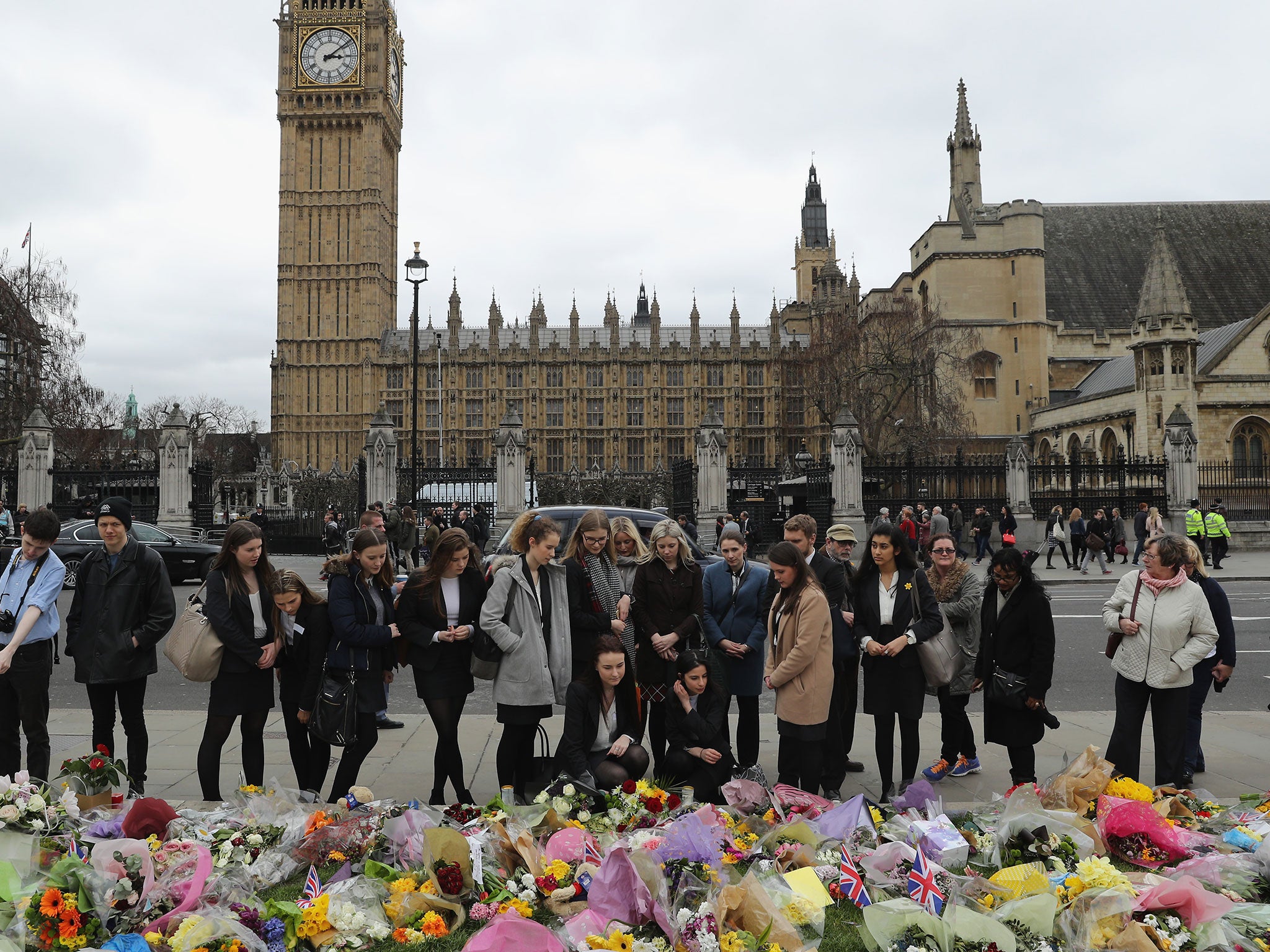Westminster attack inquests - latest updates: Coroner gives conclusions on how victims of terror attacker Khalid Masood died

The inquests into the deaths of the victims of the Westminster attack are due to conclude.
Chief coroner Mark Lucraft QC is due to give his conclusions at the Old Bailey on the deaths of four civilians and police officer Keith Palmer, who were murdered by terrorist Khalid Masood.
He will consider whether factors including security at the Houses of Parliament, the lack of barriers on Westminster Bridge, police body armour and security service investigations into Masood played a role in their deaths.
Please allow a moment for the live blog to load.
On Tuesday the court heard closing submissions, with Jonathan Hough QC, for the coroner, saying the inquests should conclude all five victims were unlawfully killed.
He said: “Each was murdered in a terrorist atrocity which was no less brutal for its lack of sophistication.”
Masood, 52, drove into pedestrians on Westminster Bridge on March 22 last year, killing American tourist Kurt Cochran, 54, retired window cleaner Leslie Rhodes, 75, Aysha Frade, 44, and Romanian tourist Andreea Cristea, 31.
He then stormed through gates near the Houses of Parliament and fatally stabbed Pc Palmer with two knives.
In his closing argument, Gareth Patterson QC, for families of victims on the bridge, urged the coroner to make a report on the circumstances of the case to “protect the public”.
On the role of MI5, whose knowledge of Masood has been heavily scrutinised, he said: “We do think there is room for improvement in terms of decision-making.”
He suggested security services should look again at when to investigate suspects and when to stop, and to take account of violent backgrounds.
Mr Patterson also called for the Government to “try again” with tightening rules for hiring cars.
Dominic Adamson, representing PC Palmer's widow Michelle, said that there was “a systematic failure” in protecting unarmed officers on guard at the Palace of Westminster.
He told the coroner: “In my submission it is very clear that you can be satisfied that as a result of those failures the consequences for Pc Palmer were that there was a substantial loss of the opportunities for him to be saved.”
No firearms officer had been near Carriage Gates, where Pc Palmer was on duty, for nearly an hour before Masood's attack.
Susannah Stevens, representing the officer's family, said: “If there had been authorised firearms officers present at that time, in our submission, on the balance of probabilities they would have been able to prevent a loss of an opportunity of saving Pc Palmer's life.
”Or to put it another way, on the balance of probabilities, their absence contributed to Pc Palmer's death.“
The court will hear further closing submissions in the morning, before the coroner begins giving his conclusions.
He and the paramedic were initially told that the air ambulance was on its way, but they were diverted to the Houses of Parliament, where PC Keith Palmer had been stabbed and Khalid Masood shot.
Mr Rhodes' injury was "not surviveable", a doctor found.
"In effect the damage had been done at the time of the event and surgery would be of no value."
Mr Rhodes became "increasingly unstable" in intensive care and died the following day.
Judge Lucraft said medics had done "all they humanly could" to save Mr Rhodes and nothing more could have been done to help him given the severity of his injuries.
Judge Lucraft says a Home Office pathologist that Mr Rhodes "would not have survived" if he had been transported to hospital more quickly.
Judge Lucraft is now addressing the death of Aysha Frade, a mother-of-two who was walking across Westminster Bridge on the way to collect her children from school.
She was thrown 17m from where she was struck and into the path of a bus, which ran over her body with its rear wheel causing "instantaneous" death.
Ms Frade was on her phone in the moment she was struck and hit behind, and did not appear to have noticed the car.
Ms Frade's husband and sister are in the court listening to the conclusions.
A witness described the Hyundai as accelerating before the crash and saw Ms Frade being hit. He called the emergency services and "wanted to help Aysha but realised it was too late".
A motorcycle paramedic sent to the scene said he was first alerted to an "RTC with multiple casualties".
He found all other casualties being attended to and asked the groups around them if they were conscious and breathing. He identified Mr Rhodes as a "priority 1" before finding Ms Frade.
The paramedic saw that Mrs Frade had suffered catastrophic injuries and he could "do nothing to help her".
He described trying to communicate with Korean tourists on the bridge, who were looking into the river and could not speak English.
He then found a French teenager, another French casualty and an Italian woman with injuries and started treating them, before making a report to the control room on what he believed was a terror attack and major incident.
At 14.48 a blanket was placed over Mrs Frade's body, after a paramedic told police she had died.

